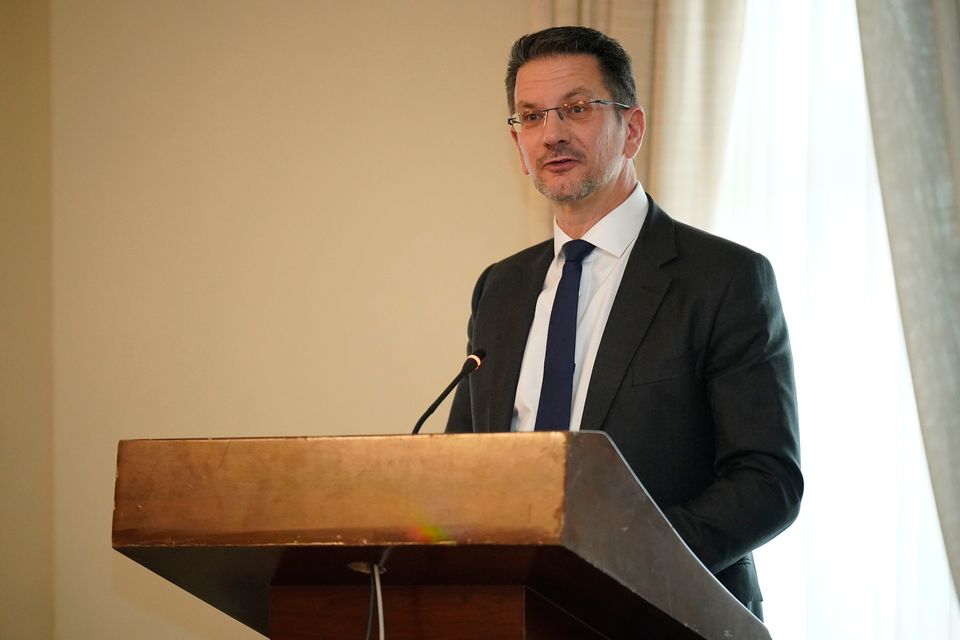‘Urgent action needed’ over supply of Veterinary medicines to Northern Ireland
Northern Ireland minister of state Steve Baker addresses the British-Irish Parliamentary Assembly at the K Club, Kildare on Monday. Photo: Niall Carson/PA
Urgent action is needed from the Government over the supply of veterinary medicines to Northern Ireland to protect human and animal health, peers have said.
The House of Lords cross-party Windsor Framework Sub-Committee has written to Northern Ireland Office minister Steve Baker following its inquiry into the potential effect of the medicines becoming unavailable or restricted.
Human medicines are covered by the Windsor Framework, the revised Brexit deal for Northern Ireland.
But veterinary medicines were not part of the deal and are instead covered by a grace period which expires on December 31 2025, after which EU rules apply.
The committee heard serious concerns that the loss of veterinary medicines may have consequences for public health in Northern Ireland and on the island of Ireland.
The committee said it is estimated that around a third of veterinary medicines currently used in Northern Ireland are at risk of discontinuation.
Committee chairman Lord Jay of Ewelme said: "This is an issue of vital importance which affects everyone, regardless of political hue.
"The Government has spoken of the need to make 'rapid progress', and we are stressing the need for a positive and swift outcome within what is a tight timescale complicated by upcoming elections in the EU and UK.
"We have set out some solutions proposed by our witnesses.
"They were united on the importance of political will in resolving this crucial issue, and the urgency in doing so, and we endorse their call for talks leading to a mutually-agreed solution between the UK and the EU as soon as possible."
In his letter to Mr Baker, Lord Jay said industry experts had stressed to the committee the link between animal and human health.
Witnesses addressing the committee also told of the potential for "serious economic effects" on the farming and agriculture industry in the absence of a solution, with farmers potentially unable to sell their produce.
The committee said the letter underscored concerns of experts - including farmers, vets and industry representatives - that the full impact of EU rules may seriously restrict the range of veterinary medicines currently available, as well as the importation of vaccines vital for controlling disease.
It said a number of witnesses made clear that the rural economy is an "essential part of the social fabric of Northern Ireland" and anything which affects the viability of this industry may have "serious social, as well as economic, consequences".
The committee said industry experts had stressed the link between animal and human health, particularly for food-producing animals.
Concerns were also voiced to the committee about the impact on the food supply chain - Northern Ireland supplies the UK with enough meat and dairy to feed 10 million people.
It said restrictions on the supply of veterinary products also have the potential to affect pets as well as show animals such as horses. If horses are not able to access relevant vaccinations, they could be unable to travel to competitions.
The committee has made a number of recommendations. It has asked the Government for:















